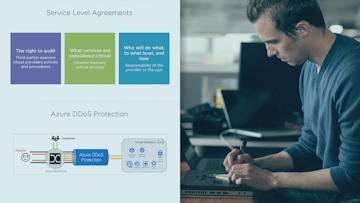
Microsoft Azure provides a range of services to use when designing cloud applications. In this course, Gathering Non-functional Requirements for Microsoft Azure, you will gain an understanding of which are best suited for different non-functional requirements. First, you will learn about the services available. Next, you will discover how to identify which service suits each non-functional requirement. Finally, you will explore different service level agreements, and how these relate to requirements. By the end of this course, you will know how to select appropriate Microsoft Azure services based on the requirements of your...
Read more
Good to know
Save this course
Activities
Career center
Cloud Architect
DevOps Engineer
Data Engineer
Software Engineer
Data Scientist
Cloud Security Engineer
IT Architect
IT Manager
IT Consultant
Project Manager
Business Analyst
Software Tester
System Administrator
Database Administrator
Network Administrator
Reading list
Share
Similar courses
OpenCourser helps millions of learners each year. People visit us to learn workspace skills, ace their exams, and nurture their curiosity.
Our extensive catalog contains over 50,000 courses and twice as many books. Browse by search, by topic, or even by career interests. We'll match you to the right resources quickly.
Find this site helpful? Tell a friend about us.
We're supported by our community of learners. When you purchase or subscribe to courses and programs or purchase books, we may earn a commission from our partners.
Your purchases help us maintain our catalog and keep our servers humming without ads.
Thank you for supporting OpenCourser.


